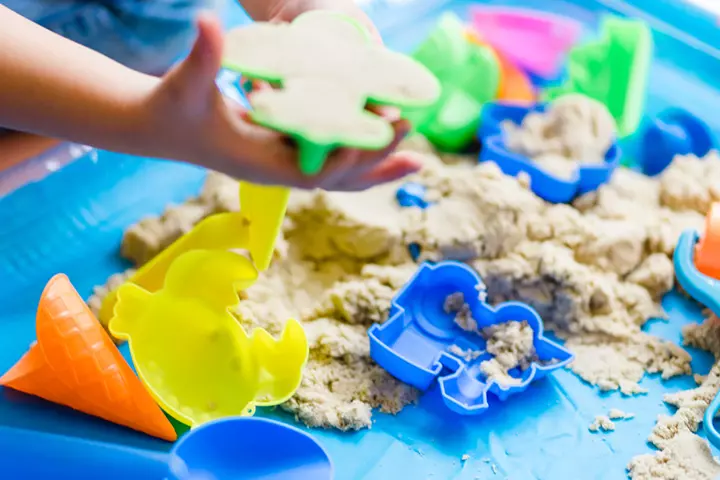
Image: Shutterstock
As a parent, you play a crucial role in your child’s development, shaping their abilities and preparing them for a successful future. One essential aspect of cognitive growth is executive functioning skills, which lay the foundation for efficient decision-making, problem-solving, and self-control. These skills are not innate but can be nurtured and strengthened through early and consistent guidance. In this article, we will explore what executive functioning skills are, when children begin developing them, and how you can actively foster these vital abilities in your child’s early years. Read on!
- What Are Executive Functioning Skills?
Executive functioning skills are a set of cognitive processes that enable individuals to manage themselves and their resources effectively. These skills encompass a range of mental processes, including attention, self-control, emotional regulation, organization, planning, and flexible thinking. Together, these skills form the executive control center of the brain, responsible for orchestrating and coordinating various cognitive functions.
- When Do Children Begin Developing Executive Functioning Skills?
Image: Shutterstock
Executive functioning skills start developing in early childhood and continue to mature throughout adolescence and adulthood (1). The most rapid growth occurs between the ages of 3 to 5, as the brain undergoes significant changes and forms vital neural connections (2). During this critical period, children are particularly sensitive to environmental influences, making it an opportune time to nurture these skills effectively.
- How To Nurture Executive Functioning Skills
1. Self-Control And Emotional Regulation
Help your child recognize and express their emotions in healthy ways. Encourage them to talk about their feelings, and teach simple coping strategies like taking deep breaths or counting to ten. Model self-control in your own behavior, showing your child how to manage frustration and stress effectively.
2. Organizing
Image: Shutterstock
Create structured routines and consistent environments to promote organization. Use visual aids, like charts and calendars, to help your child understand daily schedules and responsibilities. Gradually involve them in organizing their belongings and setting up their play area, fostering a sense of orderliness.
3. Planning
Guide your child in setting achievable goals and creating simple plans to achieve them. Break tasks into manageable steps and celebrate their progress. As they grow older, involve them in planning outings or family activities, encouraging them to consider various factors and outcomes.
4. Maintaining Attention To Tasks Despite Distractions
Engage your child in activities that require sustained attention, such as puzzles, reading, or building blocks. Minimize distractions during these tasks, and gradually increase their complexity. Offer praise and encouragement for staying focused and completing tasks.
5. Following Multi-Step Directions
Give your child clear and concise instructions that involve multiple steps. Start with simple tasks and gradually increase the complexity as they become more proficient. Break down the steps if necessary and provide positive reinforcement when they successfully follow the directions.
6. Flexibility
Encourage your child to adapt to changes in routines or plans. Introduce new activities and experiences to broaden their perspectives and increase their ability to adjust to different situations. Model flexibility in your own behavior, showing them that change can be embraced positively.
7. Play-Based Learning
Image: Shutterstock
Engage in play-based activities that stimulate executive functioning skills. Board games, puzzles, building blocks, and imaginative play encourage problem-solving, attention, and planning. By participating in these activities with your child, you can provide guidance and create teachable moments.
8. Practice Mindfulness
Introduce mindfulness practices to help your child build emotional awareness and self-regulation. Simple breathing exercises or guided visualizations can teach them to center themselves and manage strong emotions effectively.
9. Encourage Delayed Gratification
Teach your child the value of patience and delayed gratification by providing opportunities for waiting. Whether it’s waiting for their turn in a game or patiently waiting for a treat, this practice strengthens their self-control and ability to resist impulsivity.
10. Model Organizational Skills
Lead by example and demonstrate organizational skills in your daily routines. Keep your home environment tidy and maintain a structured schedule, showing your child the importance of orderliness and planning.
11. Read Together
Image: Shutterstock
Reading books together fosters attention, comprehension, and critical thinking. Discuss the storylines, characters, and emotions, encouraging your child to engage their executive functioning skills while enjoying quality bonding time.
12. Provide Choices
Offer your child opportunities to make age-appropriate choices, allowing them to practice decision-making and responsibility. Simple decisions like selecting their outfit or deciding on a snack can empower them to become more independent thinkers.
13. Scaffold Learning
Gradually increase the complexity of activities to challenge your child’s executive functioning skills. As they master simpler tasks, provide more intricate puzzles or multi-step projects to stretch their cognitive abilities.
As you support your child’s growth, remember that every child develops at their own pace. Be patient, offer gentle guidance, and celebrate their progress. Your efforts to nurture their executive functioning skills will equip them with the essential tools to navigate life’s challenges with confidence and resilience. Start early, and watch as your child flourishes into a capable and resourceful individual, ready to embrace the world with a strong executive control center. Let us know in the comments section if you have been using any of the tips shared above to nurture your child’s executive functioning skills!
















